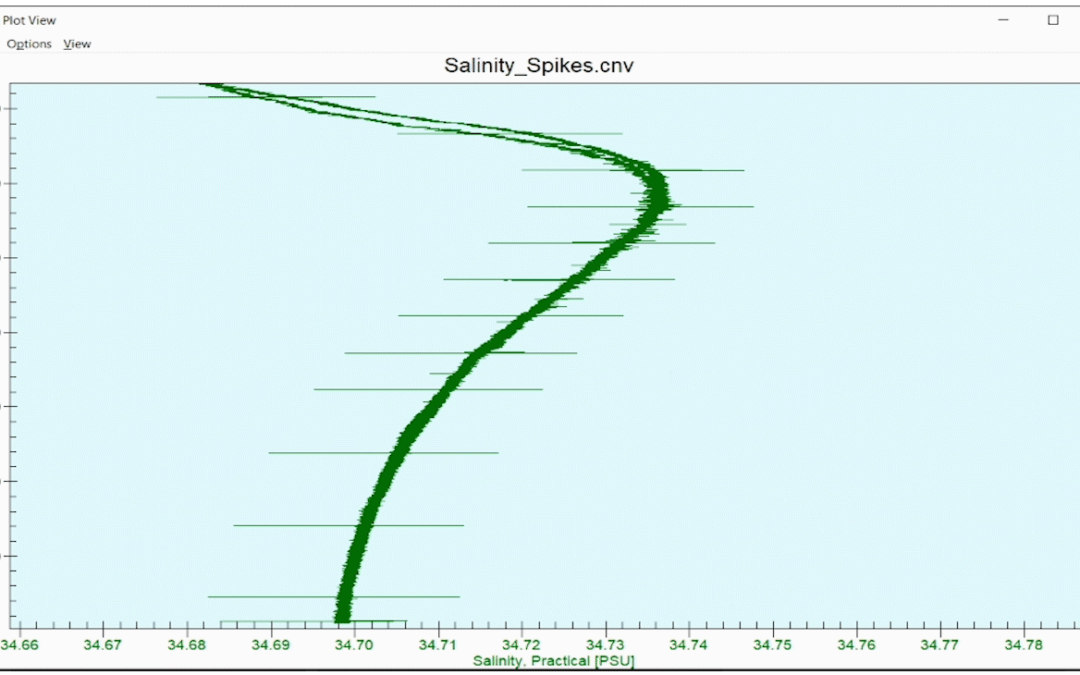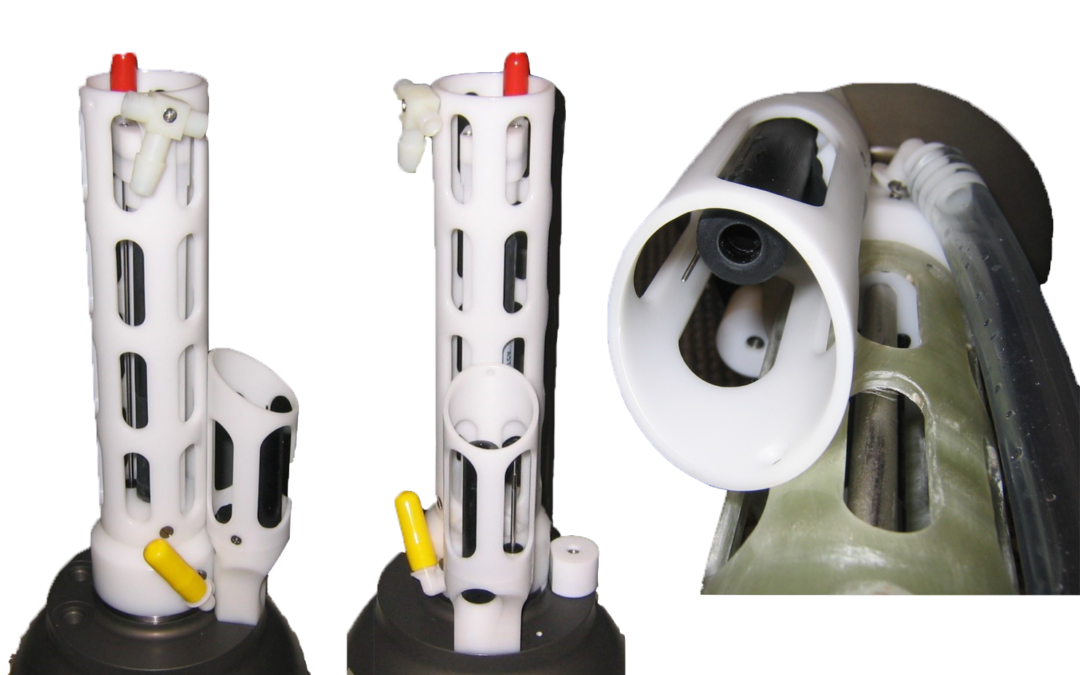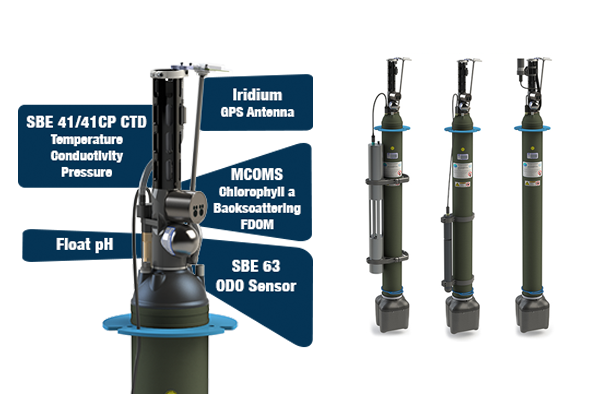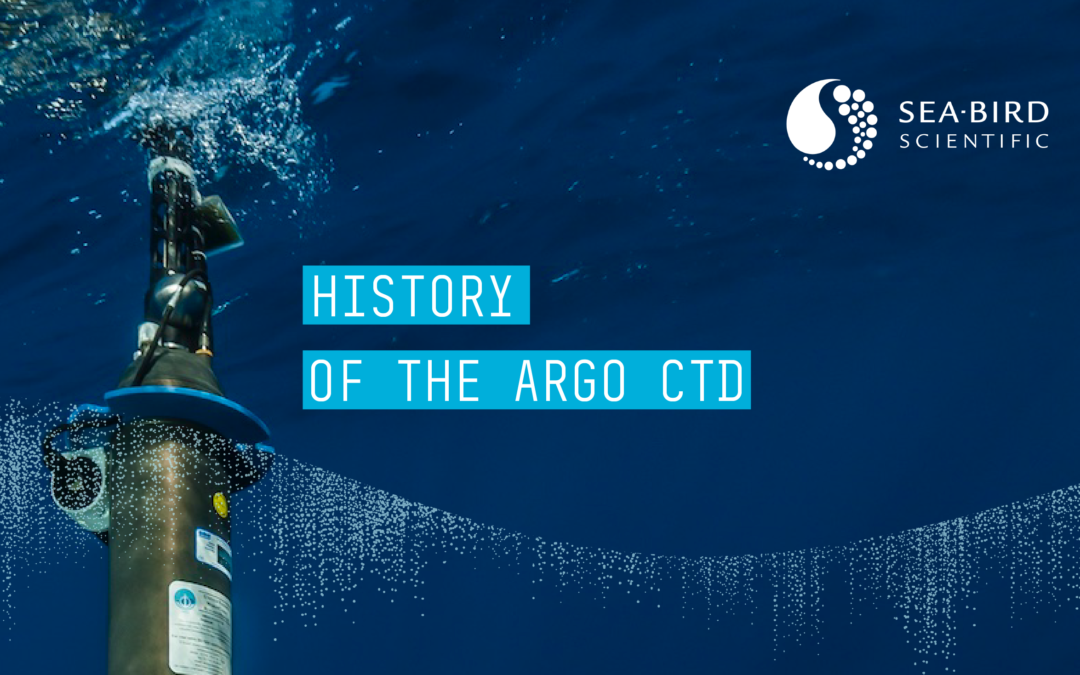This salinity profile was from an arctic deployment in rough seas. At a certain point, we see regular salinity spikes of about ± .01 psu in the upcast data. Can you determine what caused this?


This salinity profile was from an arctic deployment in rough seas. At a certain point, we see regular salinity spikes of about ± .01 psu in the upcast data. Can you determine what caused this?

You never know what’s floating on the surface. That’s why Sea-Bird created the STS – to prevent the main Argo CTD from ingesting surface contaminants, but still obtain surface data. Learn how it helps extend deployments.

Did you know that the sensors that power BGC-Argo are also in heavy use on shipboard and moored platforms? Learn about the analogous BGC sensors for deployment on moorings and vessels, and how your field crew can keep stride with ocean robots.

Believe it or not, the first profiling floats couldn’t measure temperature and salinity. They solely traced ocean currents, totally ignorant of the sweet CTD data they were passing by. Adding a CTD changed the game. Learn more about the early beginnings of Argo, and how Sea-Bird’s first float CTD helped change the face of oceanography.
Ensure Your Oil & Gas Operations Meet Environmental Compliance Standards For decades, customers have trusted Sea-Bird Scientific to help them generate accurate, usable data. As a result, it’s not uncommon to find a Sea-Bird product demonstrating where...
Through focused, organization-wide collaboration, Sea-Bird Scientific has made significant strides in improving the customer experience, with extra attention on exceeding customer expectations in service, support and delivery. To reinforce this commitment, we are...
We hope to see you at Ocean Business 2025 Overview Ocean Business 2025 is the global meeting place for ocean science and technology professionals. Connect with thousands of the industry’s brightest minds, and share ideas to help define the future of ocean technology....